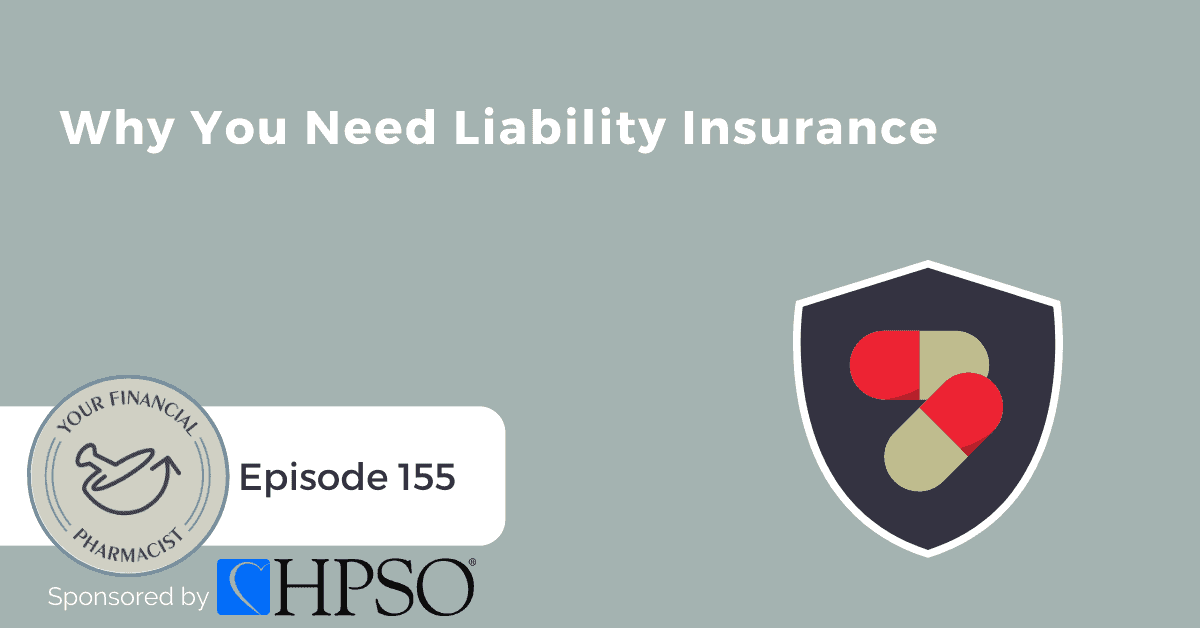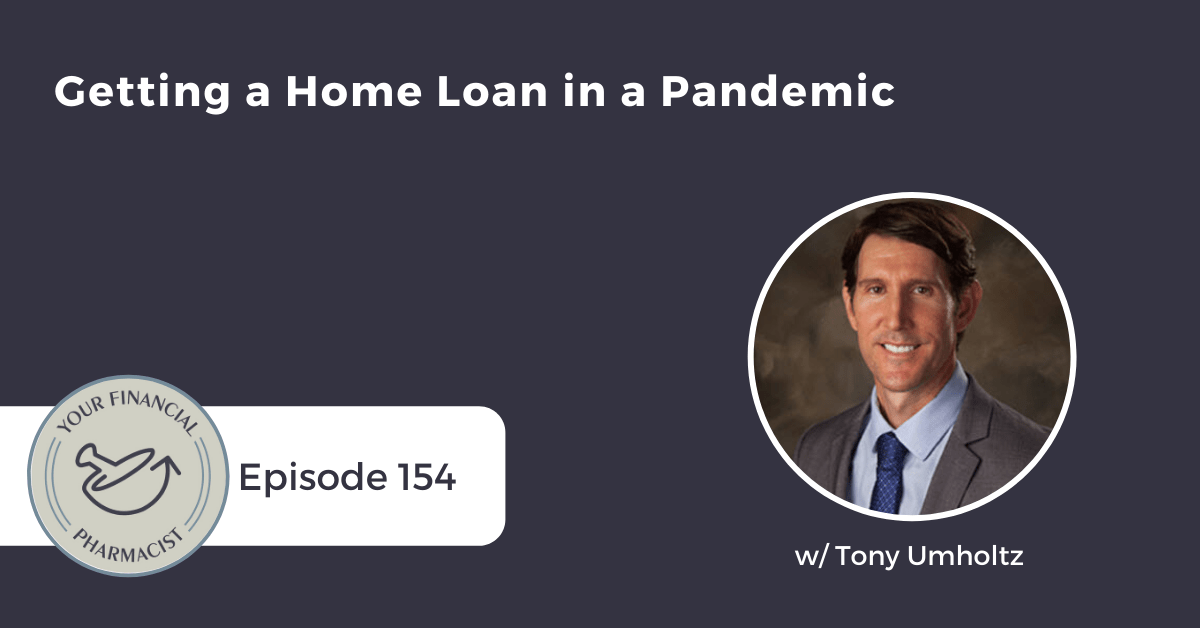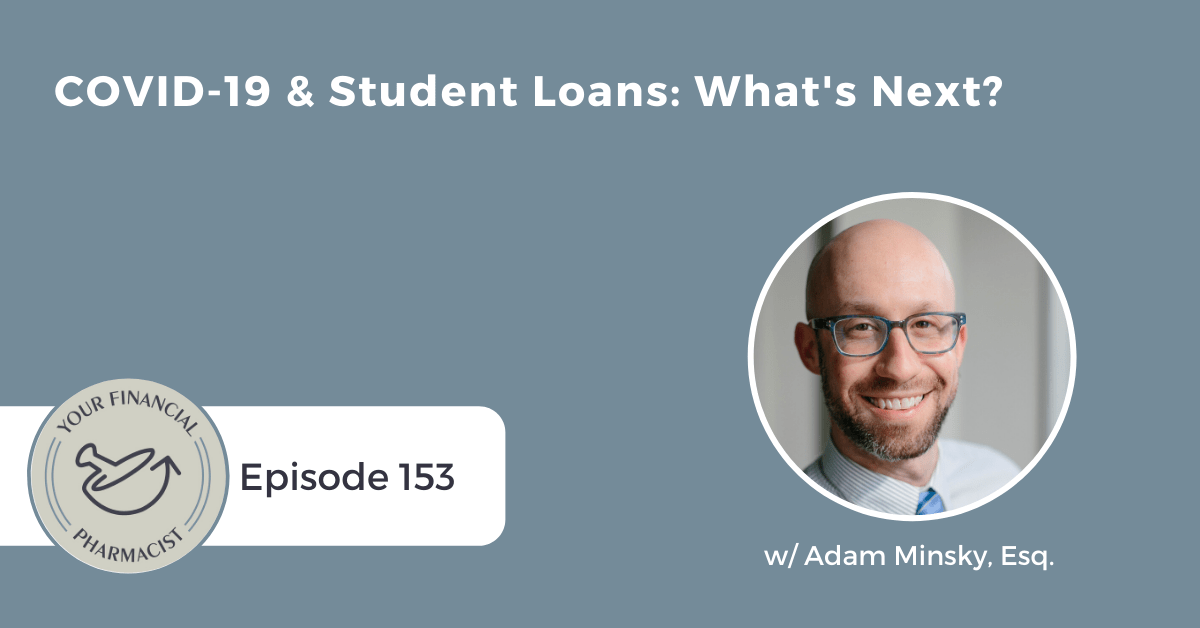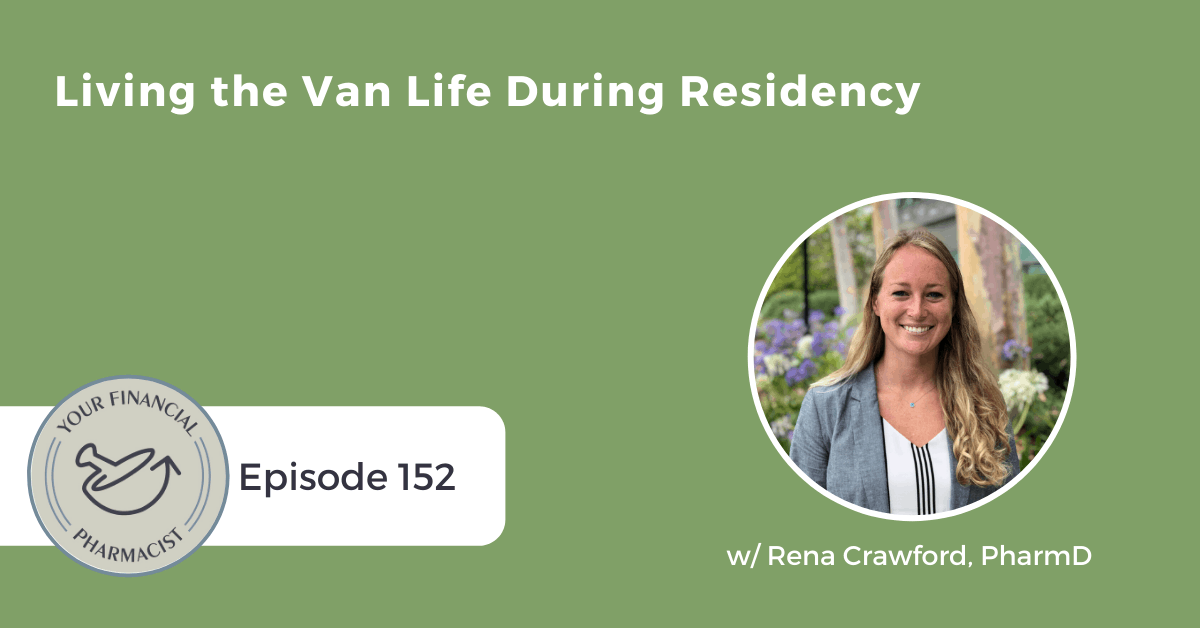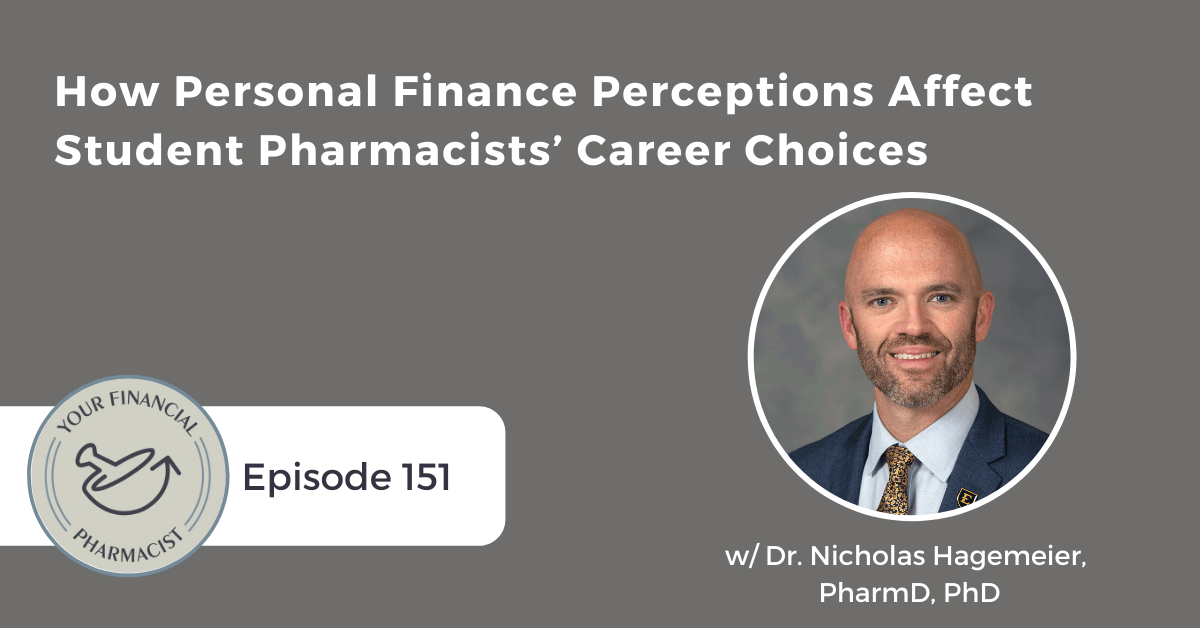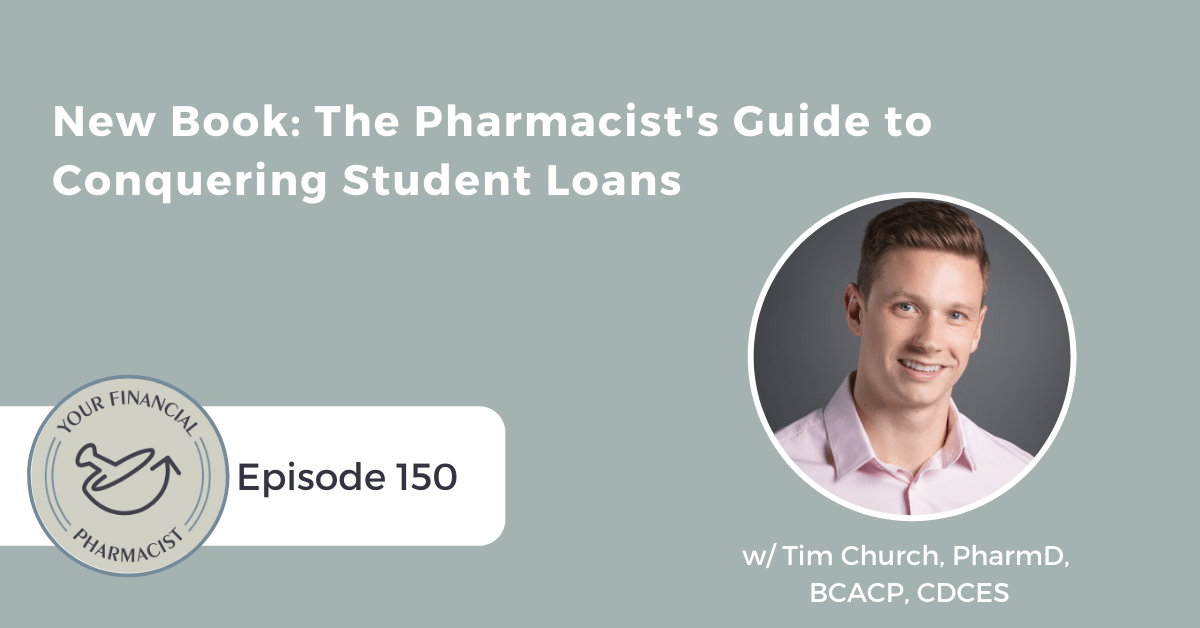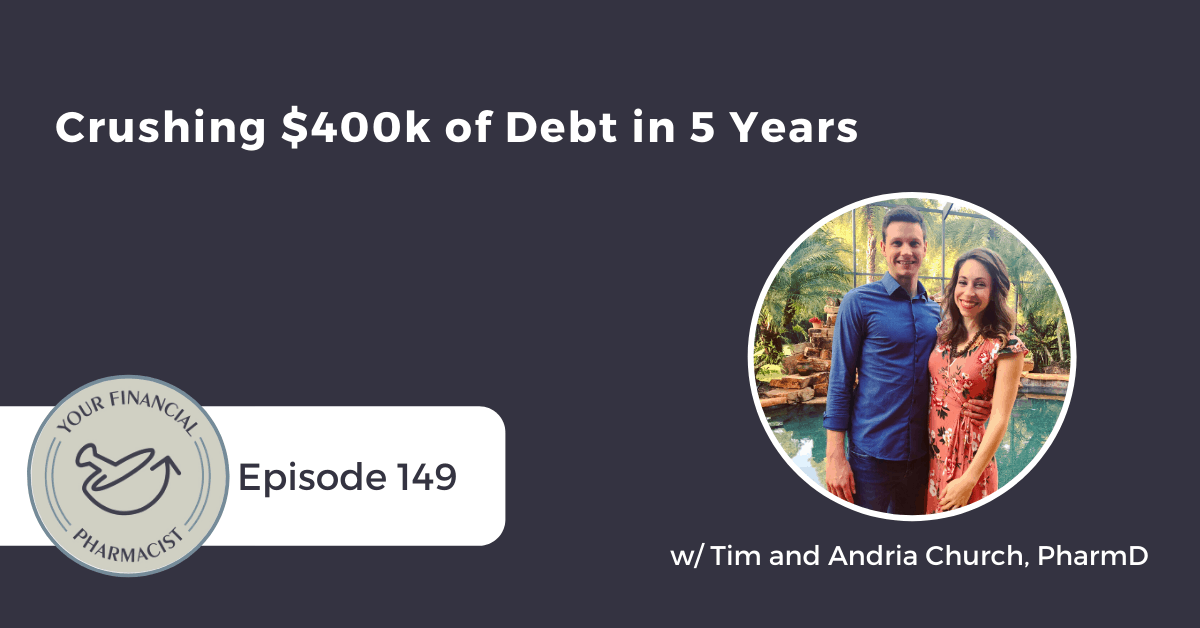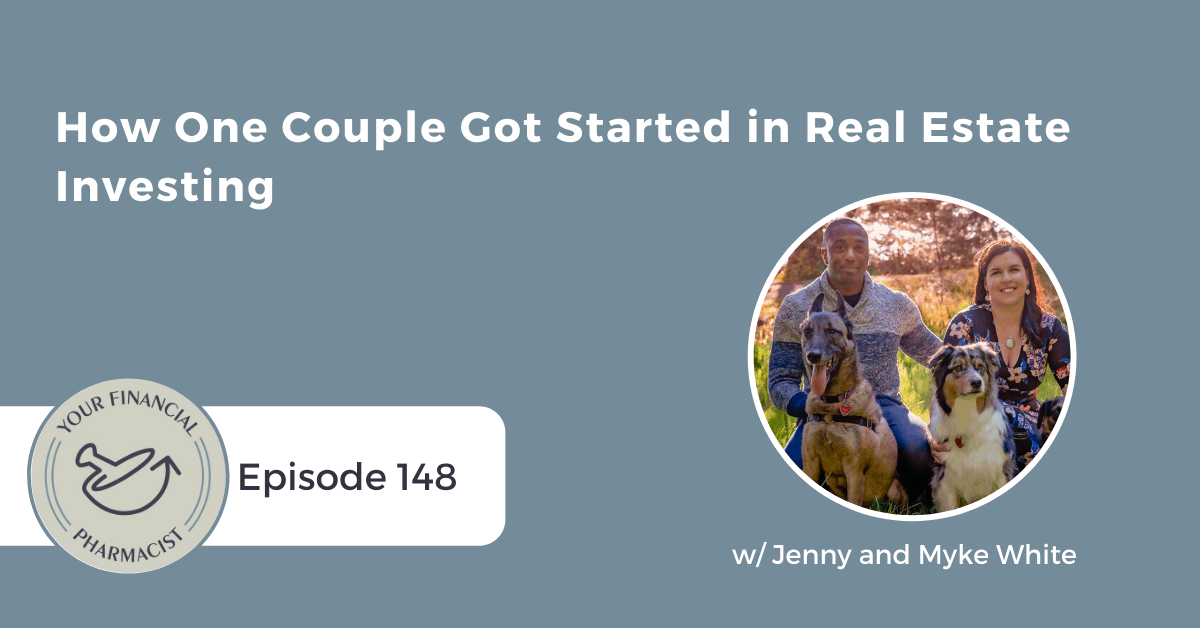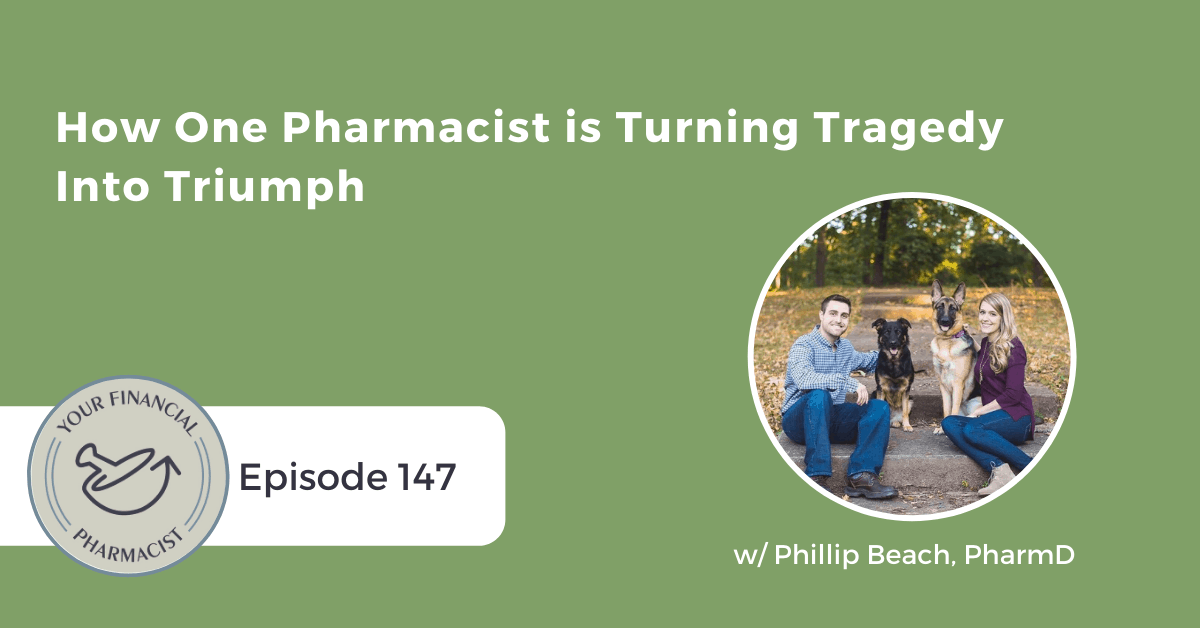Should You Refinance Your Student Loans Right Now?
Tim Church, YFP student loan guru, joins Tim Ulbrich to talk about all things student loan refinancing. Tim discusses what refinancing is, how it differs from consolidation, the benefits, the potential drawbacks, what to look for when choosing a company, and whether or not borrowers should refinance while the CARES Act is in place.
Summary
Tim Church and Tim Ulbrich dive deep into all things student loan refinancing in this episode. Tim Church explains that refinancing student loans is similar to refinancing a home mortgage and that the general goal of refinancing is to lower the interest rate so that you’re paying less on the loan over time. Refinancing can also change the type of interest you have on a loan and the terms of the loan.
Tim explains that there are several benefits of refinancing student loans including reducing the interest rate, removing a cosigner, getting out of a variable interest rate on a loan, accelerating or catalyzing your payoff, and also the potential to get paid by a company to refinance. Since refinancing federal loans pulls them out of the federal loan system and into the private sector, there are several drawbacks to refinancing including that your student loans may not be discharged upon death or disability and that you may not be able to receive help through forbearance if you are experiencing a financial hardship.
However, with COVID-19 and the CARES Act in place, Tim says that federal loan borrowers in general should not refinance their student loans. This is because the CARES Act has allowed for a pause on making federal student loan payments without interest accruing, late fees or a reporting of a delinquent status until September 30, 2020. During this time, pharmacists with qualifying federal student loans can take the money they would normally use on their student loans and apply it to other financial priorities, like paying down credit card debt or bulking up an emergency fund. If someone is facing financial hardship, then The CARES Act is beneficial for them as they don’t need to worry about making any payments at this time. Additionally, if a pharmacist is pursuing a forgiveness program, these $0 payments are counted as a qualifying payment.
Tim also discusses the protections the federal loan system offers its borrowers, when refinancing might make sense, and why and how he refinanced his loans multiple times.
Mentioned on the Show
- The Pharmacist’s Guide to Conquering Student Loans by Tim Church, PharmD
- YFP 149: Crushing $400k of Debt in 5 Years
- YFP 150: New Book: The Pharmacist’s Guide to Conquering Student Loans
- YFP 146: COVID-19 Financial Considerations
- YFP 153: COVID-19 & Student Loans: What’s Next?
- YFP Facebook Group
- YFP Planning
- Your Financial Pharmacist
- YFP Calculators
- YFP Resources
- Better Business Bureau
- Refinance Your Student Loans
- YFP Refinance Calculator
Episode Transcript
Tim Ulbrich: Tim Church, welcome back to the show.
Tim Church: Thanks, Tim. Always a pleasure to be on here, whether I’m doing the interview or the interviewee.
Tim Ulbrich: Absolutely. Well, I appreciate you coming on. And so here we are, and Episode 149, we heard all about the journey you and Andria took to pay off $400,000 of debt in five years. So what’s new? The debt-free life is what? Give us the update.
Tim Church: Well, in general, it’s feeling pretty darn good. I mean, just having that massive amount of disposable income now, it just feels like that weight is off our shoulders. So anything that comes up that we need to purchase, like it’s never like, oh, do we have enough to cover that? Do we have enough to hit our other goals? But I’ll tell you, what’s interesting is it feels like there’s so many things right now competing for that disposable income. So even though the student loans are gone, it’s like, OK, let’s go onto the next thing. So we’re really looking at replacing our vehicles, we want to save for a down payment on a home, we built up our emergency fund pretty well, but all of these things are kind of going right in a row.
Tim Ulbrich: Absolutely. And we were talking a little bit before the show, I was reflecting back on the journey that Jess and I took and now looking with our four boys at home and the expense that they are, especially as we get into our grocery budget lately, my gosh, with the four of them. It’s real, though. I mean, there’s just competing priorities. And I think it’s a good reminder the value of being debt-free if that’s a possibility as it relates to your student loans, you go into that next phase of life, which is exciting. So Episode 149, we talked about the journey that you and Andria took to pay of $400,000 of debt in five years. And then we followed that up in Episode 150 and we gave our listeners a sneak peek of our newest book, authored by you, “The Pharmacist’s Guide to Conquering Student Loans.” And here we are, still in the midst of the COVID-19 pandemic and considering the impact of that pandemic and the passage of the CARES Act, which we talked about a little bit in Episode 146, questions have been popping up about refinancing student loans, when it does or does not make sense given the current situation. So we wanted to bring back onto the show our student loan guru, our very own Tim Church, to dig deeper into this topic. So Tim, back on Episode 149, you mentioned that although not the most important thing that you did to knock out your debt, one that did help in a significant way was refinancing your loans. So remind us, what is refinancing? And how does it differ from consolidation?
Tim Church: When you refinance student loans, you’re really changing or restructuring those terms. And it could be one thing or it could be a combination of things. But in general, when you refinance, you’re changing the interest rate, but you could also be changing the type of interest, either going from a fixed rate to a variable rate or variable to a fixed or some kind of a hybrid rate. Or you could also be changing the terms. So maybe your loans are 20 years or could be 30 years, and maybe you’re changing it to a 5-year, a 7-year, a 10-year. So really, what you’re doing is just, like I said, you’re just changing or restructuring what those terms are. Now, one of the things is that you can’t refinance within the federal system. And I know that there’s big talks about being able to do that one day in the future. But for a long time, especially those with graduate loans or professional loans, they’ve had very high interest rates, including myself. Most of mine were in the realm of 6.8%, so really encroaching that 7% mark. And refinance really differs from consolidation because you’re actually — your goal is to try to get a better interest rate than what you currently have or what exists whereas consolidation in general is just taking multiple loans, which could have different interest rates, combining them into one loan, and then really you get the end result of one weighted interest rate. And then usually when people are referencing consolidation, they’re talking about a direct consolidation loan, which is through the federal loan system. And sometimes that’s done to make it easier if you’re going through one of the forgiveness programs or maybe you’re trying to convert loans that didn’t qualify that you want to qualify or just overall make it a little bit easier having one servicer, one payment per month. But in essence, you’re not really changing the structure of the loan because you’re still paying the weighted interest rate of multiple loans.
Tim Ulbrich: Yeah, good distinction, Tim. One of the most common questions that we get — and I think a lot of confusion — is this difference between refinancing and consolidation. And so just to reiterate, when you’re refinancing, the goal is to actually reduce your interest rate. When you’re consolidating your loans, bringing them together, combining them into one loan, it’s a weighted average interest rate across those loans. So you’re not effectively lowering the overall interest rate but rather getting a weighted average of the interest rate of those loans. So talk to us then about the benefits of refinancing student loans. Why would one consider this path?
Tim Church: Well, it’s just kind of like refinancing a home. Your overall goal for the most part is you’re trying to get a lower interest rate than what currently exists and what you’re paying because over the course of the loan, depending on how fast you pay it off and depending on your term, you’re generally going to save more money over time because each and every month, more of your payment is going towards the principal instead of interest. So if you are making a certain payment on a loan at say 7% interest and you refinance and continue to make that same payment at a lower interest such as 5%, you’re going to pay the loan off faster because, again, more of that payment is going toward the interest. Now, there are a couple other reasons why you might consider it, so if you have a cosigner on a loan and you’re trying to remove that and take full responsibility, that might be one reason to do that. Maybe you have a variable loan. So obviously not currently — we’re not in the realm where variable interest rates on student loans are going to be tremendously high. But in some situations, that’s one of the reasons why people would get out of a variable loan because they don’t want to pay such high interest and get more toward the monthly payments. One of the interesting things that I did that I think really made a big impact when I was paying off my loans is I thought it helped accelerate or catalyze my payoff. So we already talked about in past episodes that I made some mistakes along the way, should have went for forgiveness, but sort of once I was on that path of OK, let’s get the student loans out of my life, let’s go for it, when I refinanced to a 5-year term — at one point I think I was paying like $3,200 or $3,300 was my automatic payment drafted every month, I had to make that payment. And so what it did was I knew that I had to basically shift my budget around that payment because it was such a large payment. But it forced me to make it. And so I think everybody has experience at least some point in their life, maybe not every day, but present bias where we really care more about spending our money today versus saving it or putting it towards debt or something else. And so I knew that when that payment came up, I had to have money in my bank account in order for it to process through and not default on it. So for me, it was kind of a way that I was going to get after it, I was going to accelerate and make it happen. And then one of the other benefits that is out there certainly is actually getting paid by one of these companies to refinance. So it’s a very competitive market out there, there’s a lot of players. And they’re trying to get your business. And so the nice thing is unlike a home mortgage refi where you might have to pay closing costs or some kind of fee, there really is no cost to you other than the time it takes to fill out the paperwork in order to do it. But you might actually get paid some kind of welcome bonus or new customer bonus as a result of refinancing with a particular company.
Tim Ulbrich: Yeah, great summary, Tim. And your example of your own story and having larger forced payments I think is a great one for especially — I mean, in general — but especially our new grads that are hearing this where I see that as one of the areas where income-driven repayment plans can get people in trouble where they may start off as a smaller payment and naturally expenses and lifestyle creep and other things may rise your expenses around that versus one of the benefits of a fixed, larger payment such as in your situation is it forces you to really prioritize that debt repayment and then budget around that.
Tim Church: Yeah, and I think, Tim, that there’s a couple ways to look at that. I think one side of the camp is kind of what I talked about as like we are our own worst enemy. So we need some things in place in order to protect ourselves from ourselves. But then obviously you have the other side where people say, “Well, I don’t want to have to force myself to make that payment. I’ll just choose a plan where I have to make a lower payment, and then I’ll pay extra every month.” And sometimes that works, but not always.
Tim Ulbrich: Yeah, and I think too is you do a nice job talking about on this topic in general, you’ve also got to consider the opportunity cost as you’re thinking about other priorities with your financial plan. And I think you do a great job of this in the book, “The Pharmacist’s Guide to Conquering Student Loans,” where you talk about all of the different options that are out there and really take the reader through from beginning to end, understanding those options and then determining for their own personal situation what is perhaps the best option for them to move forward based on all of these different variables that we’ve been talking about thus far and have talked about previously on the show. So certainly as you outlined, there are some perks or some benefits with refinancing student loans. But with everything going on with COVID, potential income hits in the CARES Act, is this still something, is refinancing pharmacists should even be considering right now?
Tim Church: In general, I would say no.
Tim Ulbrich: Alright. So thanks for joining us on this week’s episode. We’ve got nothing else to talk about, Tim! I mean, what do you mean, “in general, no?”
Tim Church: We answer the question.
Tim Ulbrich: So why should most pharmacists not refinance their loans right now?
Tim Church: Well, let’s look at this through the lens of what kind of loans one has. And I understand you may have federal and private, but let’s consider the majority of your loans is in one of those buckets. So if you have federal loans, one of the reasons why I would say no at this point is really because of the CARES Act. And that really was something that was just huge benefit that the federal government rolled out as a way to help students deal with their loans during this time, knowing that a lot of people have been hit with either a reduced income or completely loss of income. But essentially what this did was it allowed those who have federal loans to pause all of their payments until Sept. 30 of this year, something that is really done automatically by the servicer. But any qualifying loan such as direct federal loans, direct subsidized, direct unsubsidized, direct consolidation loans and FFEL loans and Perkins loans owned by the Department of Education, all of those qualify under that. And not only did they allow you to stop making payments, but they’re really — there’s no interest that accrues during that time. I mean, which is a huge benefit for a lot of people that are struggling financially.
Tim Ulbrich: Yeah, and I think it’s really important, we talked about this a little bit before on the Financial Considerations for COVID-19 when we talked about the CARES Act, but through Sept. 30, 2020 — and the Department of Education, for clarification, does have the option to extend this for three months if they choose to do so. That has not been done yet. But they do have the option to extend this through the end of 2020. But on qualifying loans, so as you mentioned, Tim, direct federal loans as well as those FFEL loans and Perkins loans that are owned by the Department of Education, those essentially you have a $0 payment that’s due as well as 0% interest. So the only thing excluded from this would be FFEL and Perkins loans not owned by the Department of Education, health professions loans, and private loans. So no interest, $0 payments on qualifying loans, so also talk to us about the PSLF provisions or those that are pursuing even non-PSLF, whether or not those payments count towards forgiveness.
Tim Church: Right, so those who are on the track for PSLF or non-PSLF forgiveness after 20-25 years, as you probably know, you have to be in an income-driven repayment plan and make qualifying payments during that time. Now, normally, if you’re in forbearance, those loan payments do not count towards either the 120 or depending if you’re going for 20-25 years. But because this is an administrative forbearance, any of these $0 payments, they essentially count towards the number that you’re trying to qualify for. So even during this time, it’s kind of like you’re getting a free pass without having to make that income-driven repayment but still getting the credit. So it’s actually a great time where you can shift whatever you were paying towards forgiveness in one of the income-driven plans to some other financial goal or having fun if you still have the income.
Tim Ulbrich: So Tim, you mentioned and clearly articulated that for those that have qualifying federal loans, obviously in this time period, $0 payments, 0% interest, doesn’t make sense. I think it’s also worth noting here that, you know, when you look at the major benefits of refinances, as you mentioned earlier, you’re often going and shooting for a significant reduction in interest rate that hopefully is going to save thousands and thousands of dollars over the repayment. And sometimes in doing that, you’re willing to take on some things that private lenders, even though these have largely been very, very competitive with the federal offering, in doing that, trying to accomplish that goal of reducing your interest rate and saving that money, you’re willing to take on some things with a private lenders that are different than what the federal program offers. So remind us of what those protections are that not all private lenders offer that somebody will get in the federal system.
Tim Church: Sure. So I think one of the biggest ones is the option to immediately opt in for a income-driven repayment plan. So essentially, if you have federal loans at any time, you can say, “I want to go into an income-driven repayment plan,” and they’re going to base that off of your last year’s tax return or if your income has significantly decreased since that time that you filed, that they’re going to base your payments upon that, which is really I think is a huge deal because if you are somebody who has significant income change, that is a great benefit. It’s essentially a safety net in order — if anything happens to your income. And then I think some of the other big ones are forbearance, so even if you couldn’t make the income-driven repayment payments on a particular plan, you could basically push pause. But you would be responsible for income as it would — or I’m sorry — the interest would accrue during this time on anything that was unsubsidized. And then you may not get the benefit of having your loans discharged if you happen to pass or you became permanently disabled, which is another benefit. Now, some private lenders will have those options in place, which is good. So I think that’s something to really know when you are signing that over, especially if you’re going from federal to a private lender when you refinance is know about those because if it’s something that they don’t offer, if anyone is essentially on the hook for any of those loans or if they try to cede your estate, you definitely want to have those insurance policies to really protect you in case that would happen.
Tim Ulbrich: Yeah, great stuff, Tim, too. And I think it’s also worth mentioning here, as we talked about on Episode 153 with student loan attorney Adam Minsky that there are some forgiveness provisions that are on the horizon that are being proposed in the legislature. To be clear here, nothing has been passed. This is all hearsay at this point in time. And we talked about several of those that might come to be or may not come to be, everything ranging from potentially an extension of the $0 payment, 0% interest or perhaps some forgiveness that could be happened in there for federal loans, some of those proposed legislations do and do not include private loans. So I think there’s a whole host of things that may or may not be coming. Again, at this point, nothing has been passed. But as we’ve talked about on Episode 153, one of the benefits I think for staying put if you have qualifying federal loans in addition to everything we’ve talked about, is to see how this plays out for the foreseeable future as they look at perhaps the next coronavirus relief bill that may or may not come to be.
Tim Church: Yeah, and I saw on I think it was the Facebook group and on our page, there was some people that were pretty upset about these forgiveness programs and whether or not they would go through after they’ve either paid off most of their loans or paid it off completely. So I think the bottom line is that you can’t always time when these things are going to happen, but if you have an opportunity, it might be worth waiting a little bit to see if it does come through. But I think one of the biggest things when you look at whether when you’re making that decision to refinance, there’s one huge assumption that you’re making. And I think it’s so critical. It’s that you’re assuming that when you refinance, that your income isn’t going to change or it’s going to go up, that you’re not going to have any change in your income. And I think that is such a key thing because again, those protections to either push pause or go to an income-driven repayment, that’s not necessarily going to be there depending on the lender that you’re working with. So you may have a pretty secure job or you may be in a situation where you’re not quite sure or maybe you’ve had reduced hours. And so especially in those situations, I think you’ve got to be really careful because if all of a sudden your income takes a big hit, well then you could be in a very unfortunate situation.
Tim Ulbrich: So to that point, Tim, for those that are listening that have private loans and are thinking, what the heck? I’ve been left out of all this. I was trying to do my due diligence and make payments and perhaps they’re in a financial hardship, maybe not, what options do they have? I remember seeing some states that were moving things forward, trying to work with private lenders. But as I understand it, that’s not really the same as the provisions of the CARES Act in terms of what that offers borrowers. Talk to us a little bit more about that.
Tim Church: Yeah, so there’s a number of states that believe — at the time of this recording, there’s about nine or 10 states that have stepped in to work with private lenders, including some of the big players like SoFi, Lendkey, Earnest, Navient. But basically, these provisions kind of mimic the CARES Act in that they’re also allowing borrowers to temporarily suspend payments for 90 days. They’re also waiving late fees. But I think one of the biggest things is that the interest does not stop accruing if you’re not making your payments. So that’s really the one big key distinction. And I would say that obviously, even if they’re giving you the option to suspend payments that that’s not necessarily something you should do if your income hasn’t changed and you still are able to make the payments. The other thing that they mentioned is that they’re not going to report delinquent payments to the credit bureaus if you’re going to stop making your payments during that time. Although that is an issue, actually, with people with federal loans under the CARES Act as there have been some cases reported with that.
Tim Ulbrich: Yeah, and we talked about that on Episode 153. And from everything that I can tell, that has been resolved. So some people saw a short-term ding on their credit. And that has been I think corrected. But always a good reminder to be checking your credit and your credit score. And hopefully those issues have been resolved. So Tim, based on what we’ve talked about, to be clear, what we’ve said here is most pharmacists should not be refinancing during this time period where we have the provisions of the CARES Act. Assuming that the majority that are listening have qualifying federal loans. So is there any subset where in this time period, refinancing may make sense?
Tim Church: Yeah, I thought about this myself in terms of if I was in this position and I had already refinanced my loans, which I did a number of times, you know, is that something possible? So I think those who have already refinanced once or another time and they have private loans, I would say maybe. OK? So the stipulations that would go along with that is that obviously, whatever you’re going to refinance to, that those terms are manageable. Obviously, you’re looking for a better interest rate.
Tim Ulbrich: Right.
Tim Church: So you have to come out on top and it has to make sense from a mathematical standpoint. But also, you want to be able to make those payments and not have to stretch your budget so far. I think the other thing you have to really think about — and we’ve talked about this I think a couple times already — is that you’re not anticipating any change or loss in your income because again, especially if you refinance to a more aggressive term where your payment may actually increase, that’s even more reason that you really have to be pretty confident in that. Sometimes what’s kind of nice is that you might even be able to refinance to a term that’s longer than what you are with a better interest rate with the intention that you’re going to pay extra in order to come out ahead over time. So that’s obviously an option as well. I think the other thing is you have to look at your overall financial picture and look at what your goals are and what the priority is because especially if you’re someone who has credit card debt or other goals you’re trying to accomplish, maybe you’re not going to be as aggressive right now with your student loans, especially if you’re going to have to make a bigger payment. So I think that’s something you have to take into consideration as well.
Tim Ulbrich: Yeah, such a great reminder that student loans are a really important part but only one part of the financial plan, right? We talk about this with investing as well. Really, really important part of the financial plan, but it’s only one part of the financial plan so really taking a step back and I think speaks to the value of a financial planner and a coach that can help you really look at the big picture and determine how you’re going to prioritize and strategize. And I would point to — and credit to you, Tim, for the work that you’ve done in building out the resources. If our listeners are not already aware, head on over to YourFinancialPharmacist.com, lots of great information not only on refinancing but also calculators for refinancing and other tools that can help you determine what your savings could be if you choose that as a path forward. So at this time, I want to shift and do some rapid-fire refinance Q&A. So while we have you here, I want to tee off some of those common questions that I get, you know, from listeners or out speaking and talking to pharmacists related to refinancing. And a couple of them we’ve touched on, but I want to really directly answer them, so we’re going to go through these one-by-one. So first question I have for you is what factors do you consider when selecting a lender to refinance? So lots of options out there and, you know, how many should I be considering? Should I only be looking at one? And ultimately, how do I get to that decision of which one to work with?
Tim Church: You’re absolutely right. There’s so many options out there in the marketplace now. I think that the key thing is really to shop around and make sure you’re getting the best deal. It would be unfortunate that if you refinance but you could actually get a better deal with a different company. Obviously, that’s not the only thing to consider. But I would say that that’s one of the most important factors because obviously from a mathematical standpoint is you’re trying to get the best deal in order to save the most money over time. And that may also help you accelerate your payoff. So I think that’s huge. I think the other thing is if your loans — if the loans are going to be discharged on death or disability. And to me, I think that’s really important and a really good thing if the lender is offering that because again, if for some reason you became permanently disabled, could not make your payments, you don’t want your disability insurance check that you have coming going all towards your student loans or covering a big chunk of that. I mean, you need it to live. And that’s why even some of those policies, they have student loan riders built in there as differing payments that you would have on top of your monthly benefit. So I think that’s a really important thing. And the same thing with whether they’re forgiven on death because if you’re married, have a spouse or significant other or a cosigner, you really don’t want to have to leave that debt to somebody else. And obviously you can have life insurance in place, but it’s just another thing that I think is a good benefit when you’re looking at the lender. And I think just making sure they’re a reputable one. You can go to the Better Business Bureau, I think NerdWallet has a watch list of predatory lenders that are out there. But there’s some really big names, obviously, and you can check some of those out on our website.
Tim Ulbrich: Yeah, and I think too in addition to the Better Bureau of Business rating, I think obviously you want to consider the consumer experience. And I would say it’s a great place to lean on the YFP community, jump in the Your Financial Pharmacist Facebook group, ask them a question about your experiences with different lenders. You know, you want to make sure that they’re going to be responsive in addition to obviously the variables we mentioned of finding a product that has the best rates and ultimately the terms that you’re looking for. So Tim, you mentioned in that last response the importance of loans being discharged on death or permanent disability, which would match the benefit that one would have in the federal system. So I’m guessing some may be wondering, well, how do I know that? How do I find out if a private lender does offer that?
Tim Church: Well, we have the information on the lenders that we’ve partnered with. But obviously there’s a lot more out there. So I think trying to find their facts on their website is a good place to check, but sometimes they don’t even have that. I know that back when I was first analyzing different lenders and trying to refinance, I actually had to send emails out to the company for them to get that in writing through an email to say like, yes, this is true, this is something that we offer. So sometimes it’s always not the easiest thing to find on their website.
Tim Ulbrich: And you know, you mentioned in your story — going to the next question here — you mentioned in your story, refinancing more than once. And you know, I think that’s something that often gets overlooked. So tell us more about not only one, that being an option, but why people should consider doing that and how often they might consider re-evaluating.
Tim Church: Yeah, I think looking back — so I refinanced mine three times and my wife did three times as well. And the bottom line was that each time that we did that, we were able to get a better rate. And so it really just made sense to do that because it just became more competitive. I think I started out going from 6.8% down to maybe 4% or somewhere around there. And eventually got down in the low 3%s and then with First Republic got down to even 1.95%. So each time we were able to get some savings. And there really is no limit in terms of how often one can do that. I have heard some cases for people that do it like extremely often, like multiple times a month or every two months, that you could experience a temporary hit in your credit score. But overall, I mean, it can be very beneficial. I mean again, you’re just shifting to a different servicer for the most part. And as long as they have good service, you’re really just making the same payment, could be the same terms, but just a little bit of a better interest rate. And a lot of times, as mentioned before, they can incentivize you that when you switch to a different lender that they’re going to reward you with either some interest rate reduction but also possibly some kind of a welcome or cash bonus.
Tim Ulbrich: And to that point about multiple refinances having an impact on credit, tell us about your experiences. Did you see that have a short-term impact on your credit score?
Tim Church: I really didn’t. I think the soonest that I refinanced after doing it, I think I want to say 2-3 months was the earliest that I did once I made it happen. So I never did it more frequent than that, so I can’t speak to those who might be wanting to do it more frequently. But like I said, I’ve only heard of some case reports where people have noticed — and typically, they’re not huge dings in their credit score. They’re typically small. But I guess technically, it could be much larger I guess if it was something you were doing like every week. And for those that are listening, especially any of the recent graduates, the new graduates, one of the most common questions I get is, you know, how soon can I refinance? So considering the variables that a lender would be looking at, what have you typically seen in terms of what might be the good time period for one to consider applying for that first refinance?
Tim Church: Well, I think you really have to get your plan down pat first. I mean, that is the key because once you pull that trigger and refinance, I mean, you’re essentially disqualifying yourself for any forgiveness programs. And that’s one of the biggest mistakes that I made and that I shared in the book is that you have to know that because you have to know what you’re giving up by doing that. Now if you’re someone who you think you’re committed to the private sector and forgiveness is not going to be an option or your debt-to-income ratio isn’t significantly high, then yeah, then maybe it is something that you consider. Generally, lenders are not going to even allow you to refinance until you’ve proven income. And I think now, especially during the COVID time, they’re actually being stricter on who they’re going to lend money to and be able to refinance because it’s — I think I want to say one of the lenders, initially they only needed like your last paycheck or last two. And now they’re upping it to your last three paychecks to make sure that you’ve had consistent income. So a lot of times, you have to wait. I mean, I really wouldn’t even consider it during this time if you’re a new graduate and you have federal loans. You have the grace period anyway.
Tim Ulbrich: Right.
Tim Church: But then on top of that, you have the CARES Act in place. You’re not forced to make any payments. So I would really just take the time, explore all of your options, make sure you know exactly what kind of position you’re going to take and how that’s going to impact your student loan options. And then, you know, once the grace period passes or you get to that point, then you can kind of decide which route you’re going to go.
Tim Ulbrich: Yeah, such a great reminder. For those that are or are not new or recent graduates, just the reminder that you want to have clarity on your repayment plan, so really determining the strategy first. And then if you get to the answer that refinance is best for you for whatever reason, obviously not in the moment likely for those that have qualifying federal loans but in the future, OK, then you start to go down the path. But you want to be crystal clear that that is the right path for your personal repayment strategy. Tim, last question I get asked all the time is how to apply with one of these private refinance lenders and I see they’re giving me fixed and variable rates to consider. Talk to me about what factors one should consider that would help them determine whether or not they may take the fixed option or the variable. And of course, we’re not specific rates here, so we don’t know what those rates are. But just generally speaking how to evaluate fixed versus variable rates.
Tim Church: Yeah, I think this is a tough one because like a lot of other products out there, even like mortgages, the variable rates are going to be very sexy, very flashy. They’re typically going to be lower than what fixed rates are available. And that can be very enticing to want to go that route. The problem is that if something happens in the market and rates significantly change, your payment can change and the amount that you pay in interest can significantly change. And it’s hard to predict into the future exactly how that’s going to fluctuate. Now, right now you might make the argument that most likely, we’re not going to see rates climb in the short term foreseeable future. But again, is that actually going to happen? It’s hard to exactly say. And if you’re even considering a variable rate, you want to know what the top end rate is going to be. Usually, there’s terms with regards to how frequent those rates can change but then also a maximum that you could pay in that situation. So I know there’s a lot of people that they’re comfortable with that level of risk and with that rate changing and the fact that they could refinance again to get out of it if needed. And certainly that’s one way to look at it. Me, I was never in that camp where I was comfortable with that risk, even if it was a small percentage improvement, I’m going fixed so I know exactly what’s coming out of my monthly budget or at least what the minimum payment is, and I’m not going to have any surprises along the way. So that made me feel really comfortable knowing that, even if it was, like I said, a little bit of a higher interest rate.
Tim Ulbrich: I think this is a good reminder for our listeners to check out our refinance calculator and tool on the YourFinancialPharmacist.com website and do the math. I mean, run the math on best case, worst case scenario of the variable rate. And, you know, to your point, really ask yourself what risk tolerance do you have but also what margin do you have in your budget? So you know, if you see that math on variable rate worst case scenario and you say, “Oo, I don’t know if I have the margin month-by-month for that difference,” then that might answer your question. But you know, if the rate difference is that significant, the savings are potentially that significant and you do have some margin, well then that might help inform which direction you take as well. So Tim Church, great stuff. And as a reminder to our community, “The Pharmacist’s Guide to Conquering Student Loans,” our latest book authored by Tim Church, “How to confidently choose the best payoff strategy that saves you the most money,” pick up your copy today at PharmDLoans.com. It’s a great book whether you’re overwhelmed with student loans or confused about repayment plans that exist, unsure if the strategy that you have in place today is the best one or perhaps a new graduate trying to determine what strategy is the best one forward or those that are feeling anxious about how to handle loans during residency or during a financial hardship, this book is for you. I can attest to it. I’ve read it. I think it does a great job of talking through all of the repayment options and strategies and really presents a very complicated topic and presents it an easy-to-understand and more importantly, actionable way that’s all customized for the pharmacy professional and written by someone who has done it. No theory, no case studies, but actual execution. So again, you can pick up your copy today, PharmDLoans.com. Again, PharmDLoans.com. And as always, if you like what you heard on this week’s episode of the Your Financial Pharmacist podcast, please leave a rating and review on Apple podcasts or wherever you listen to your podcasts each and every week. Have a great rest of your day.
Current Student Loan Refinance Offers
[wptb id="15454" not found ]Recent Posts
[pt_view id=”f651872qnv”]


